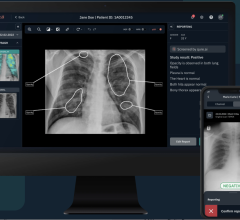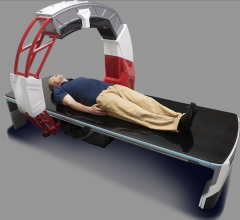
March 4, 2016 — The National Medical Association has joined colorectal cancer care advocacy groups and the American College of Radiology (ACR) in calling on Congress to pass the CT Colonography Screening for Colorectal Cancer Act (H.R. 4632). Introduced in the House by Reps. Brad Wenstrup (R-OH) and Danny Davis (D-IL), H.R. 4632 would provide Medicare coverage for seniors who choose to be screened with a virtual colonoscopy, or computed tomography (CT) colonography. This would remove a financial barrier to care now widely covered by private insurance.
“Early screening for colorectal cancer saves lives. Unfortunately, too many Americans fail to get screened because they feel current procedures are too invasive, or can’t for medical reasons. By covering an additional method of screening, Medicare can give seniors and physicians another tool for preventive and lifesaving care,” said Rep. Wenstrup.
“Colorectal cancer is largely preventable thanks to effective screening tools. Ensuring access to proven screening exams through Medicare is especially important for America’s vulnerable populations,” noted Rep. Davis.
Colorectal cancer (CRC) screening rates are lower and CRC incidence and death rates higher among African-Americans. Virtual colonoscopy is an American Cancer Society-recommended screening exam that has been shown in studies, in the United States and abroad, to increase screening rates where offered. Less invasive than optical colonoscopy, it does not require sedation. After the procedure, patients may return to daily activities.
“Medicare coverage of virtual colonoscopy would increase African-American and other minority access to this test that can overcome many cultural stigmas and attract more people to be screened. This would prevent many cancers, find more cancers before they progress and save thousands of people who might otherwise die from a disease that is often preventable,” said Edith Peterson Mitchell, M.D., president of the National Medical Association.
A recent major study shows that screening Medicare patients with CT colonography would cost 29 percent less than with optical colonoscopy and save up to $1.7 billion per screening cycle. CIGNA, UnitedHealthcare, Anthem Blue Cross Blue Shield and other major insurers cover screening virtual colonoscopy. More than 20 states require insurers to cover these exams. Yet, Medicare does not cover beneficiaries for CT colonography.
Virtual colonoscopy has been proven comparably accurate to colonoscopy in most people of screening age — including those ages 65 and older. President Obama chose a virtual colonoscopy in his first checkup as Commander-in-Chief.
“Every day an average of 100 Americans die from colorectal cancer. It is a tragedy that the majority of these lives could have been saved as colorectal cancer can largely be prevented with timely screening. Yet one out of every three at-risk adults has not taken this lifesaving step. Providing Medicare coverage of CT colonography would provide a proven screening method for individuals who either cannot, or will not have a colonoscopy,” said Eric Hargis, public policy advisor for the Colon Cancer Alliance.
“Colorectal cancer is preventable — since detecting precancerous polyps can stop them from becoming cancer. Medicare coverage for virtual colonoscopy would provide access to a proven test that more seniors may use, especially since it is less invasive than an optical colonoscopy, and requires no sedation. This screening exam can detect cancer early, allow for timely treatment, if needed and save lives,” said Carolyn Aldigé, president and founder of the Prevent Cancer Foundation.
Anne Carlson, executive director of the Colon Cancer Coalition, echoes this, “Colorectal cancer is expected to kill about 50,000 Americans this year. Catching cancer early saves lives. In order to increase screening rates among seniors, Medicare must cover the innovative, lifesaving virtual colonoscopy.”
H.R. 4632 is the companion to S. 2262 co-sponsored in the U.S. Senate by Sen. James Inhofe (R-OK) and Sen. Bill Nelson (D-FL).
“Colorectal cancer is almost always treatable if found early by screening and the cost to screen and prevent the disease is exponentially less than to treat cancers not found until advanced stage. Passing H.R. 4632 can help save lives and reduce screening exam costs,” said Judy Yee, M.D., chair of the American College of Radiology Colon Cancer Committee.
For more information: www.acr.org


 August 09, 2024
August 09, 2024 








